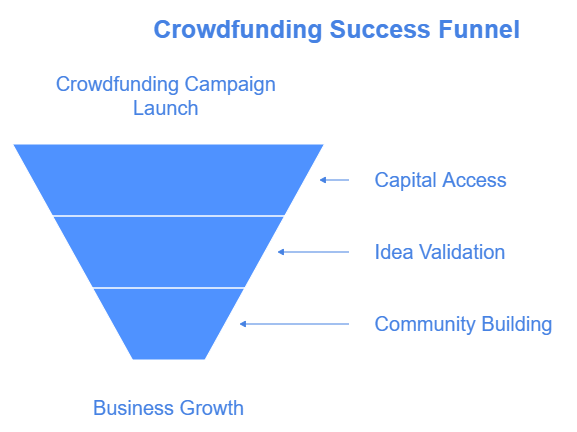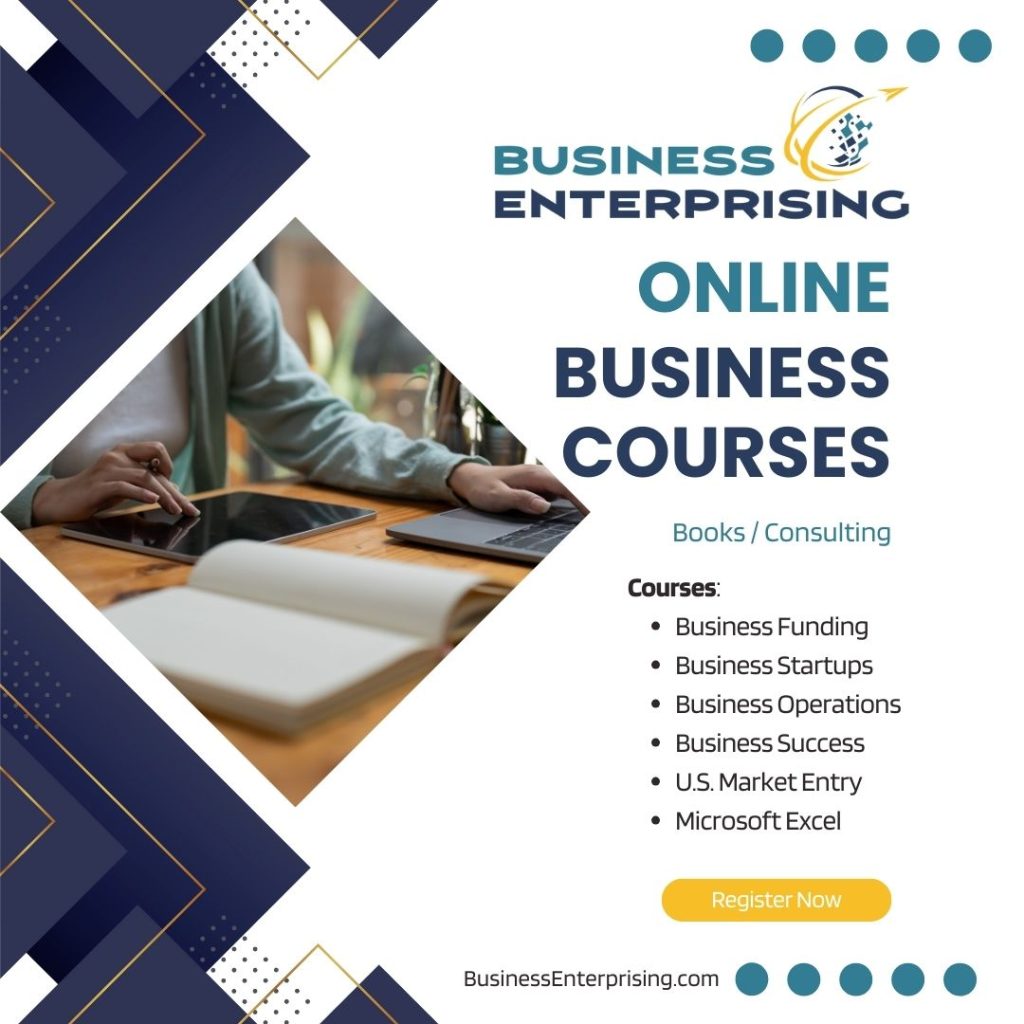 Crowdfunding for businesses offers an innovative way to raise funds and connect with supporters. This method allows you to engage directly with your audience while showcasing your ideas. Whether you’re launching a new product or expanding your operations, crowdfunding provides flexibility and reach.
Crowdfunding for businesses offers an innovative way to raise funds and connect with supporters. This method allows you to engage directly with your audience while showcasing your ideas. Whether you’re launching a new product or expanding your operations, crowdfunding provides flexibility and reach.
By choosing the right platform, you can target backers who align with your goals. A successful campaign requires clear communication, engaging visuals, and also realistic funding targets. These elements not only attract supporters but also build trust and long-term relationships.
Crowdfunding for businesses is about more than just funding. It’s an opportunity to validate your ideas and create a loyal community. With the right approach, you can achieve your financial goals while growing your business in meaningful ways.
Understanding Crowdfunding and Its Types
Crowdfunding for businesses is a flexible way to raise capital while engaging with a wider audience. Each type of crowdfunding offers unique benefits and serves different business needs. Understanding these options helps you choose the best fit for your goals.
Equity-based crowdfunding involves offering shares in your business to backers in exchange for their investment. This option works well for startups seeking significant funding and willing to share ownership. Reward-based crowdfunding provides non-monetary incentives, like products or services, to backers. This model is ideal for businesses launching new products or creative projects.
Donation-based crowdfunding allows supporters to contribute funds without expecting anything in return. It often suits non-profits or businesses with a strong social mission. Debt-based crowdfunding lets you borrow money from backers, which you repay with interest. This option benefits businesses needing quick capital without giving up equity.
By exploring these types, you can better understand how crowdfunding for businesses aligns with your needs. Choosing the right model ensures you attract the right backers and achieve your funding goals. With proper planning, crowdfunding can be a powerful tool for growth and connection.
Benefits of Crowdfunding for Small Businesses
Crowdfunding for businesses offers significant benefits, especially for small businesses seeking to grow or launch new ideas. One major advantage is access to capital without traditional loans. Crowdfunding allows you to raise funds from a wide audience, reducing reliance on banks or investors.
Beyond financial support, crowdfunding validates your business ideas. When people back your project, it shows market interest and demand. This feedback can help refine your product or service before a full-scale launch. Early support also boosts confidence in your concept, which can attract additional funding later.
Crowdfunding also helps you build a loyal community around your brand. Supporters become advocates, sharing your campaign and promoting your business. By engaging with backers and keeping them updated, you foster trust and long-term relationships. These connections can lead to repeat customers and valuable word-of-mouth promotion.
For small businesses, crowdfunding for businesses provides a unique opportunity to grow while connecting with customers. By combining funding, feedback, and community building, it becomes a powerful tool to drive success. Thoughtful planning and engagement ensure your campaign delivers meaningful results.
Choosing the Right Crowdfunding Platform
Choosing the right crowdfunding platform is essential for achieving your funding goals. The platform you select should align with your industry and audience. Different platforms cater to specific types of campaigns, so understanding their focus is important.
When selecting a platform, consider your funding goals and campaign structure. Some platforms specialize in equity-based crowdfunding, while others focus on rewards or donations. For example, Kickstarter is ideal for creative projects, while Indiegogo offers flexibility for various campaign types. These distinctions help you target backers who align with your objectives.
Your target audience also plays a key role in this decision. Research where your potential supporters are most active and engaged. Platforms with strong communities in your niche increase visibility and backing potential. Understanding these factors ensures your crowdfunding for businesses reaches the right audience.
By carefully evaluating your options, you can select a platform that maximizes your campaign’s success. Matching your goals, industry, and audience to the right platform creates a strong foundation for achieving your funding needs. Thoughtful planning helps you build trust and attract support effectively.
Creating an Effective Crowdfunding Campaign
Creating an effective crowdfunding campaign is key to attracting backers and meeting your funding goals. A compelling pitch forms the foundation of your campaign. Clearly communicate your mission, goals, and the value your project provides. A concise and engaging message captures attention and builds trust.
Visuals play a significant role in telling your story. High-quality images, videos, and graphics make your campaign more appealing and memorable. Videos are particularly effective for showcasing your project and building a personal connection with potential backers. These elements help you stand out and increase your chances of success.
Setting achievable funding goals is equally important. Unrealistic targets can discourage potential backers, while attainable goals motivate people to contribute. Break down your financial needs and explain how funds will be used. Transparency in this process builds confidence and encourages support. Crowdfunding for businesses works best when your goals align with audience expectations.
By combining a strong pitch, engaging visuals, and realistic goals, you can create a campaign that resonates with backers. Thoughtful planning and clear communication are essential for gaining trust and driving contributions. A well-crafted campaign not only raises funds but also builds a loyal community around your project.
Engaging Backers and Building Trust
Engaging backers and building trust are essential for the success of crowdfunding for businesses. Transparent communication establishes credibility and keeps supporters informed. Clearly sharing your goals, updates, and challenges demonstrates your commitment to the project and fosters confidence.
Regular updates help maintain interest and show progress. Share milestones, achievements, and any changes to your campaign timeline. Backers appreciate feeling included in your journey. By keeping them informed, you strengthen their connection to your project and encourage ongoing support.
Reward fulfillment is another critical factor in building trust. Delivering promised rewards on time shows that you value your backers’ contributions. If delays occur, communicate openly and provide realistic timelines. This transparency prevents frustration and maintains your credibility.
By focusing on clear communication, consistent updates, and timely reward delivery, you create a positive experience for your backers. These practices not only encourage support but also build a loyal community around your business. Establishing trust ensures your campaign’s success and paves the way for future opportunities.
Common Challenges and How to Overcome Them
Crowdfunding for businesses often comes with challenges that can impact success if not addressed. Unrealistic goals are a common pitfall. Setting overly ambitious funding targets can discourage potential backers. To avoid this, carefully calculate your financial needs and set a reasonable goal that aligns with your campaign’s scope.
Low engagement is another issue many campaigns face. Without active promotion, it’s hard to reach a wide audience. To overcome this, use social media, email marketing, and also personal networks to spread the word. Engaging visuals, compelling stories, and regular updates also help maintain interest and attract more supporters.
Lack of preparation can undermine even the best ideas. Campaigns that launch without thorough planning often fail to meet expectations. Before starting, create a detailed timeline, define clear objectives, and test your pitch with a small group. Addressing potential issues early increases your chances of success.
By recognizing these challenges and taking proactive steps, you can navigate common pitfalls effectively. Thoughtful planning, realistic goals, as well as active engagement are key to successful crowdfunding for businesses. These strategies help you build trust, attract backers, and achieve your funding goals.
Conclusion
Crowdfunding for businesses is a powerful way to raise capital, validate ideas, and also build loyal communities. With thoughtful planning, your campaign can achieve meaningful results. Setting realistic goals, selecting the right platform, and engaging backers are all essential steps for success.
Challenges like low engagement or lack of preparation can be overcome with a proactive approach. Sharing updates, responding to feedback, and delivering on promises help build trust with your audience. These efforts not only support your current campaign but also lay the foundation for future growth.
By focusing on clear communication as well as effective strategies, you can turn your crowdfunding efforts into a successful venture. Crowdfunding for businesses is more than raising funds; it’s an opportunity to connect with supporters and create lasting relationships. Thoughtful execution helps you reach your goals and grow your business.



